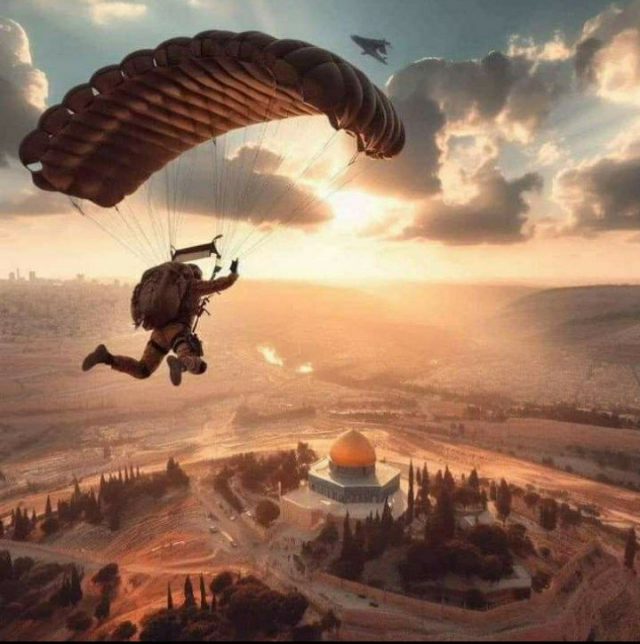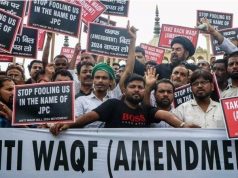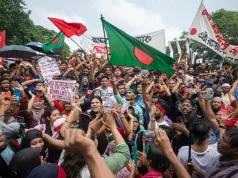The Palestine-Israel conflict is one of the most enduring conflicts in history, dating back to the early 20th century, with roots stretching back millennia. Over the years, this conflict has taken a heavy toll, claiming thousands of lives and resulting in a critical diaspora of millions of Palestinians who have long relied on humanitarian assistance for their basic sustenance. Israel has been widely criticized for its grave human rights violations against Palestinians, as well as its repeated desecration of holy sites such as the Al-Aqsa Mosque, which hold deep sanctity in the eyes of Muslims. Furthermore, settler attacks on Palestinians and the destruction of their homes have become disturbingly commonplace.
This systematic series of atrocities has ignited a profound sense of resistance in the hearts of those who advocate for Palestine. Israel’s ongoing tension with Gaza, a densely populated area housing approximately 2.2 million residents and often referred to as the largest open-air prison on Earth, has been further exacerbated since Hamas came to power through democratic elections in 2007. Israel has launched numerous offensive strikes against Gaza in the past two decades, but the recent unexpected and unprecedented retaliatory actions by Hamas have shaken the image of Israel as a military powerhouse in the Middle East.
Hamas’s response to the desecration of Al-Aqsa Mosque by Israel has unfolded across multiple dimensions. It not only directly challenged one of the most formidable military and intelligence apparatuses globally, equipped with advanced technology, but it also waged a psychological war that Israel will find difficult to reverse in the coming years. This has prompted Middle Eastern leaders who had normalized relations with Israel or were considering doing so to reconsider whether Israel can indeed provide the security it had promised.
Hamas’s recent military operation has also presented a model for capable Palestinians to consider the path of armed resistance instead of placing their hopes in Mahmood Abbas’s ineffective peace plan, which Israel has consistently ignored. It is essential to note that Mahmood Abbas’s peace plan has failed to yield tangible benefits for Palestinians in the West Bank and the Gaza Strip. Instead, Israel has continued to annex territory in the West Bank, with illegal settlements expanding in the occupied areas.
Hamas’s swift and intense response to Israel has shattered the myth of Israel’s invincibility. It has demonstrated both military strength and unwavering commitment to ending the unlawful Israeli occupation. At the outset of the latest conflict initiated by Hamas, they launched an astonishing 5,000 missiles in just 20 minutes, a powerful statement of their resolve. Hamas fighters infiltrated from land, air, and sea routes, presenting a formidable challenge to the Israeli military. This well-planned and executed strategy left Mossad struggling to provide adequate intelligence to the Israeli government.
This attack had a profound psychological impact, leaving Israel with a sense of insecurity within its own territory. At the same time, it bolstered the morale of Palestinians, who now view their long-held dream of returning to their homeland as closer to reality after decades of hardship. This psychological shift may lead to increased attacks on the Israeli army in all occupied areas, including the West Bank.
Hamas has not only achieved a strategic victory against Zionists but has also dealt a blow to the Palestinian Authority led by Mahmood Abbas. Since its formation in 1994, the Palestinian Authority has failed to deliver significant improvements for Palestinians. It has maintained security ties with Israel to suppress resistance, leading to crackdowns on Palestinian freedom fighters and their imprisonment. Palestinian civilians have come to believe that the Palestinian Authority lacks a clear agenda for achieving Palestinian freedom. As a result, their hopes have turned towards Hamas and the long-awaited freedom of their homeland. If this trend continues, the West Bank may soon slip entirely from the control of the Palestinian Authority, a significant setback for Israel.
Following this recent retaliation, Hamas has emerged as the face of Palestinian resistance and demonstrated its importance in the conflict. It has garnered support from the Muslim world, with people in Iran, Iraq, Kuwait, Turkey, Bahrain, Jordan, Lebanon, Yemen, and other countries cheering for their success. This has exposed the Abraham Accords as a mere symbolic gesture, and the campaign for normalization with Israel as a mirage. It has also forced leaders of Muslim countries who sought safety through normalization to reconsider their stance. If Israel cannot protect itself from a small Palestinian resistance group, how can it shield these leaders against advanced military technology from countries like Iran?
Operation Al-Aqsa Flood has unveiled the double standards of the international community. While they express outrage over relatively minor events in the West, they remain largely silent in the face of Israel’s extensive human rights violations against Palestinians, including the abuse of innocent children. They are not just silent over the oppression of Palestinians but openly support the tyranny of Israeli Apartheid. Israel, a country that has repeatedly rejected peace plans, has been condemned in more than 45 resolutions by the United Nations Human Rights Council (UNHRC), yet no meaningful action has been taken.
It is time for just nations to stand in solidarity with the Palestinians and support their quest for an end to illegal occupation. Nations that support and promote the Israeli occupation culture are indirectly legitimizing aggression on their own soil by other aggressors.
References:
- https://www.washingtonpost.com/world/2023/israel-palestine-conflict-timeline-history-explained/
- https://www.unrwa.org/palestine-refugees
- https://www.unrwa.org/what_the_Gaza_blockade_means
- https://www.middleeastmonitor.com/20201118-the-pas-decision-to-restore-security-cooperation-with-israel-is-incomprehensible/






